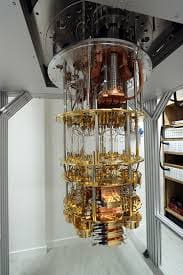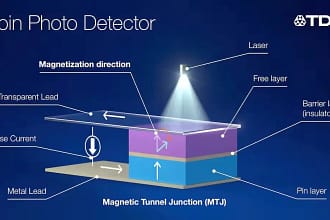Quantum Motion, a UK-based quantum computing scale-up founded by academics from UCL and Oxford University, has demonstrated rapid, large-scale characterisation of quantum devices fabricated using commercial semiconductor processes.
 The company has designed an IC with an integrated array of 1024 quantum dots on an area of less than 0.1mm² and validated them in less than 5 minutes—at least 100 times faster than the current state of the art.
The company has designed an IC with an integrated array of 1024 quantum dots on an area of less than 0.1mm² and validated them in less than 5 minutes—at least 100 times faster than the current state of the art.
The chips were manufactured by GlobalFoundries with whom QM has announced a partnership to develop quantum processors based on a scalable silicon platform. It highlights the advantage of using an existing high-volume manufacturing platform for silicon quantum processors.
QM’s chip was fabricated on GloFo’s 300mm 22nm FD-SOI process leveraging its edge processing and wider temperature range (1K and below).
The back gate bias capability of FD-SOI delivers cryogenic tuning and control which is claimed to provide an advantage compared to bulk silicon solutions for readout and control operations.
“Our work with GlobalFoundries has enabled us to demonstrate that scalable manufacturing techniques are compatible with the stringent demands of quantum computing,” says QM CEO James Palles-Dimmock, “achievement shows that silicon-based quantum chips can be fabricated using established semiconductor processes, bridging the gap between quantum research and industrial-scale production.”
“We look forward to continuing our partnership with Quantum Motion to support their vision of a scalable monolithic quantum processor,” says GloFo svp Ted Letavic.
Progressing from today’s small quantum processors to large-scale quantum computers requires an approach that can measure each qubit in a large array without needing a vast number of input/output connections to the chip, in the same way that conventional CPUs have billions of transistors interfaced to a motherboard using only a few hundred input/output connections.
The results confirm that silicon-based quantum chips are compatible with commercial semiconductor manufacturing processes, addressing key challenges in scaling up quantum computing.
By integrating qubits and control electronics on the same chip, QM is advancing towards its goal of creating practical quantum processors.




